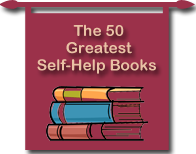OCD - Obsessive-Compulsive Disorder Self-Help Books
Obsessive-compulsive disorders affect millions of Americans, who fill their days and nights with obsessive thoughts and worries and compulsive activity such as rituals and other repetitive behaviors.
Significant advances have been made in medical treatment and the development of effective cognitive-behavioral therapies. The self help books listed below offer cutting-edge treatments and effective guidance for dealing with this troubling disorder.
Recommended Self Help Books on OCD - Obsessive-Compulsive Disorder
 Brain Lock: Free Yourself From Obsessive-Compulsive Behavior
Brain Lock: Free Yourself From Obsessive-Compulsive Behavior
This self help book presents a simple and effective four-step method for overcoming OCD. This method does not rely on medication but has been proven by brain imaging tests to actually alter the brain's chemistry. Cognitive self-therapy and behavior modification are used to develop new patterns of response to obsessions. 1997, Regan Books
 Coping With OCD: Practical Strategies for Living Well With Obsessive-Compulsive Disorder
Coping With OCD: Practical Strategies for Living Well With Obsessive-Compulsive Disorder
Coping with OCD offers a simple and engaging program that can get anyone with mild to moderate OCD started on the road to recovery. The book begins with a crash course on what OCD is--and what it is not. This self help book proposes a three-part program for recovery that uses safe and gradual exposure to distressing thoughts and situations, mindfulness practice, and techniques to restructure thinking. Additional chapters address shame and blame, depression, and maintaining progress. The book includes a helpful list of resources for further reading and additional support. 2008, New Harbinger
 Obsessive-Compulsive Disorders: A Complete Guide to Getting Well and Staying Well
Obsessive-Compulsive Disorders: A Complete Guide to Getting Well and Staying Well
Obsessive-compulsive disorders afflict over 10 million Americans. Dr. Penzel discusses the entire spectrum of these disorders and takes the reader through each step of the most effective behavioral therapies, detailing how progress is made and how to avoid relapse. This self help book also offers a thorough discussion of medication. 2000, Oxford University Press
 The OCD Workbook: Your Guide To Breaking Free From Obsessive-Compulsive Disorder
The OCD Workbook: Your Guide To Breaking Free From Obsessive-Compulsive Disorder
Obsessive-compulsive disorder is characterized by the presence of recurrent, intrusive thoughts, impulses, or images (obsessions) or repetitive behaviors or mental acts (compulsions). These symptoms can become so time-consuming and debilitating that they may have devastating consequences. Research has shown that a combination of medication and cognitive behavioral therapy is the optimal treatment for OCD. This self help workbook is an intensive, self-directed program that teaches a person with OCD how to block or postpone rituals, reduce fears, and change unhealthy thought patterns. 2010, New Harbinger
 Overcoming Compulsive Checking: Free Your Mind from OCD
Overcoming Compulsive Checking: Free Your Mind from OCD
This self help book applies the proven-effective techniques of cognitive behavioral therapy specifically to overcome checking. Its engaging exercises teach you how to face, embrace, and erase your fears. 2004, New Harbinger
 Overcoming Compulsive Hoarding: Why You Save & How You Can Stop
Overcoming Compulsive Hoarding: Why You Save & How You Can Stop
This self help book, the first ever written for savers and their families, provides an overview of compulsive hoarding and how it relates to OCD. Skill-building exercises help readers determine how to beat the hoarding problem by addressing issues that often underlie compulsive saving. 2004, New Harbinger
 Overcoming Compulsive Washing: Free Your Mind from OCD
Overcoming Compulsive Washing: Free Your Mind from OCD
From this third self help book in New Harbinger's series on specific OCD behaviors, readers who feel a compulsion to wash and clean will learn powerful, effective strategies to control these behaviors. The book includes ways to trouble shoot particularly difficult situations and educate the family and loved ones of OCD sufferers to support their loved ones' recovery. 2005, New Harbinger
This self help book offers a step-by-step treatment plan for OCD and includes worksheets, homework assignments, exercises, and didactic material. The book also features a relapse prevention program to maintain treatment gains. 1999, New Harbinger
 Overcoming Obsessive Thoughts: How to Gain Control of Your OCD
Overcoming Obsessive Thoughts: How to Gain Control of Your OCD
More than fifty percent of OCD sufferers experience agressive, religious, or sexual obsessive thoughts. This self help book offers safe and effective exposure exercises readers can use to limit the effect that obsessive thoughts have on their lives. 2005, New Harbinger
 S.T.O.P. Obsessing!: How to Overcome Your Obsessions and Compulsions
S.T.O.P. Obsessing!: How to Overcome Your Obsessions and Compulsions
This clinically proven self help program has allowed thousands of men and women with OCD to enjoy a life free from excessive worries and rituals. It includes step-by-step programs for both mild and severe OCD; methods to help you let go of obsessions and gain control over compulsions; charts to track progress; and questionnaires for self-evaluation. 2001, Bantam
 Tormenting Thoughts and Secret Rituals: The Hidden Epidemic of Obsessive-Compulsive Disorder
Tormenting Thoughts and Secret Rituals: The Hidden Epidemic of Obsessive-Compulsive Disorder
Howard Hughes, Martin Luther, and Ignatius of Loyola all suffered from Obsessive-Compulsive Disorder - as do over five million Americans. Dr. Osborn, an OCD specialist and a sufferer himself, shows that OCD is caused by chemical imbalances in the brain and that behavior therapy and proper medication can provide welcome relief. A compassionate book. 1999, Dell



